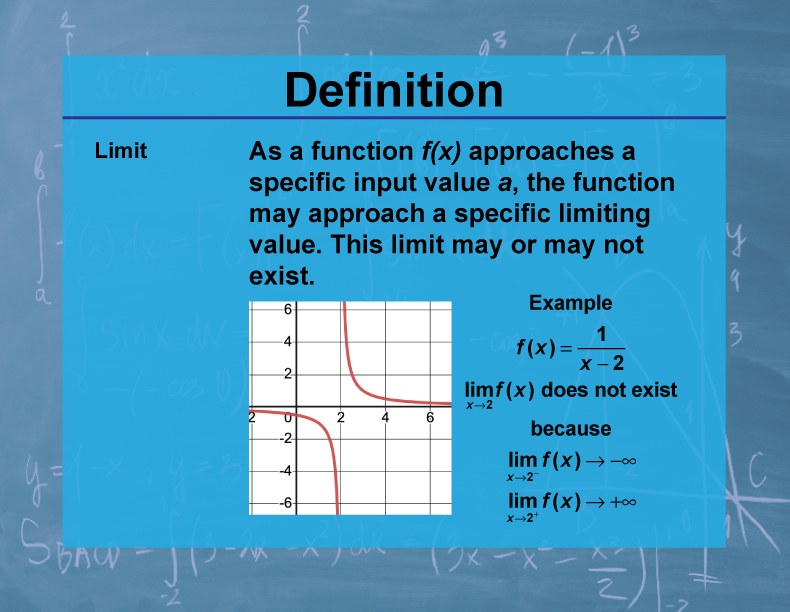
Display Title
Definition--Calculus Topics--Limit
Display Title
Definition--Calculus Topics--Limit

Topic
Calculus
Definition
The limit of a function f(x) as x approaches a, denoted as lim[x→a] f(x) = L, means that the value of f(x) can be made arbitrarily close to L by making x sufficiently close to a, but not equal to a.
Description
Limits are fundamental to calculus and form the basis for understanding continuity, derivatives, and integrals. They allow us to describe the behavior of functions near a point, even if the function is not defined at that point. In real-world applications, limits are used to model situations where we want to understand what happens as we approach a certain condition or value.
In mathematics education, the concept of limits helps students transition from algebraic thinking to analytical thinking. It's a crucial stepping stone for understanding more advanced calculus concepts. Learning about limits also develops students' ability to reason about function behavior and improves their graphical interpretation skills.
Teacher's Script: "Let's consider a real-world example of limits. Imagine you're filling a water balloon. As you add more water, the balloon expands, but there's a limit to how much it can expand before bursting. We can model this with a function where x is the amount of water and f(x) is the balloon's size. What happens as x approaches the bursting point? This is where the concept of limits comes in handy. Now, let's look at the mathematical function f(x) = (x2 - 1) / (x - 1) as x approaches 1. How can we determine its limit? What does this tell us about the function's behavior?"
For a complete collection of terms related to Calculus click on this link: Calculus Vocabulary Collection.
| Common Core Standards | CCSS.MATH.CONTENT.HSF.IF.C.7, CCSS.MATH.CONTENT.HSF.BF.A.1.C |
|---|---|
| Grade Range | 11 - 12 |
| Curriculum Nodes |
Algebra • Advanced Topics in Algebra • Calculus Vocabulary |
| Copyright Year | 2023 |
| Keywords | calculus concepts, limits, derivatives, integrals, composite functions |